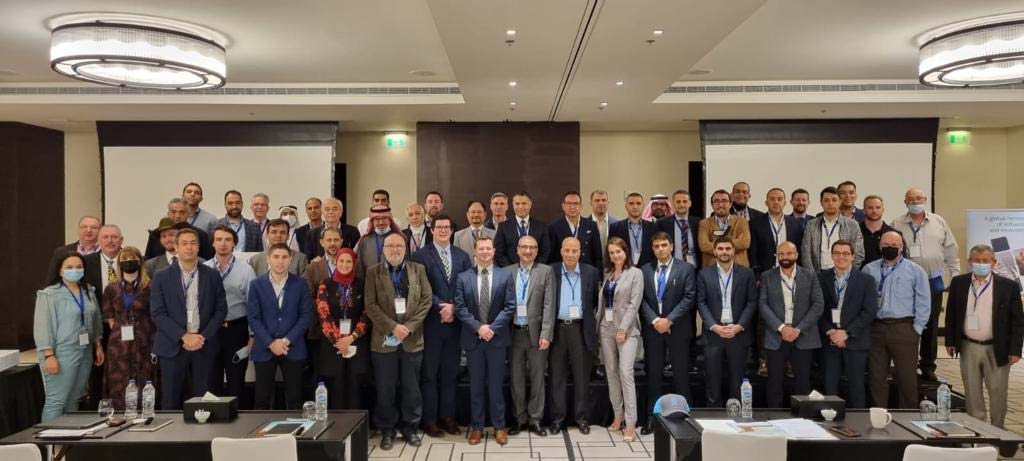The U.S. Grains Council’s Middle East, Africa, and Europe regional office used a combination of Market Access Program (MAP) and Agriculture Trade Promotion (ATP) program funds to host a corn crop quality seminar in Dubai in January 2022, where regional buyers and end-users gathered for the first such seminar in person in two years.
In addition to reported sales of more than $27 million, attendees participated in lectures on the use of distiller’s dried grains with solubles (DDGS) and corn co-products in animal feeds that were intended to help develop a preference for the products over the long term. Topics included nutritional profiles of the co-products depending on the species being fed and maximum inclusion rates.
The highlight of the seminar was the Council’s recently published 2021/2022 Corn Harvest Quality Report, which is vitally important to influencing buyers’ decision-making when purchasing U.S. corn. Approximately 50 regional importers and end-users from Egypt, Israel, Jordan, Oman, Saudi Arabia, Tunisia, Turkey, and the United Arab Emirates (UAE) attended the
two-day program.
The program began with comments from the USDA Foreign Agricultural Service’s (FAS) regional agricultural attaché in the UAE, followed by a presentation on the findings of the Council’s report. The second day of the seminar focused on the value of DDGS and corn coproducts in feed formulation, specifically in the diets of large animals, poultry and aquaculture.
Workshops such as this bring U.S. exporters together with regional grain buyers to discuss prospects for the upcoming year while also allowing the Council to continue expanding its influence with importers in the region by highlighting the added value of U.S. corn and corn coproducts.
Following the conference, attendees reported purchases of more than 80,000 metric tons (3,149,440 bushels) of U.S. corn and corn co-products valued at more than $27 million. The Council invested $107,000 of ATP and $80,000 of MAP funds to execute the program. The resulting $27 million worth of business yielded a return on investment of over $144 per $1 of total funds invested.
About The U.S. Grains Council
The U.S. Grains Council develops export markets for U.S. barley, corn, sorghum and related products including distiller’s dried grains with solubles (DDGS) and ethanol. With full-time presence in 28 locations, the Council operates programs in more than 50 countries and the European Union. The Council believes exports are vital to global economic development and to U.S. agriculture’s profitability. Detailed information about the Council and its programs is online at www.grains.org.

